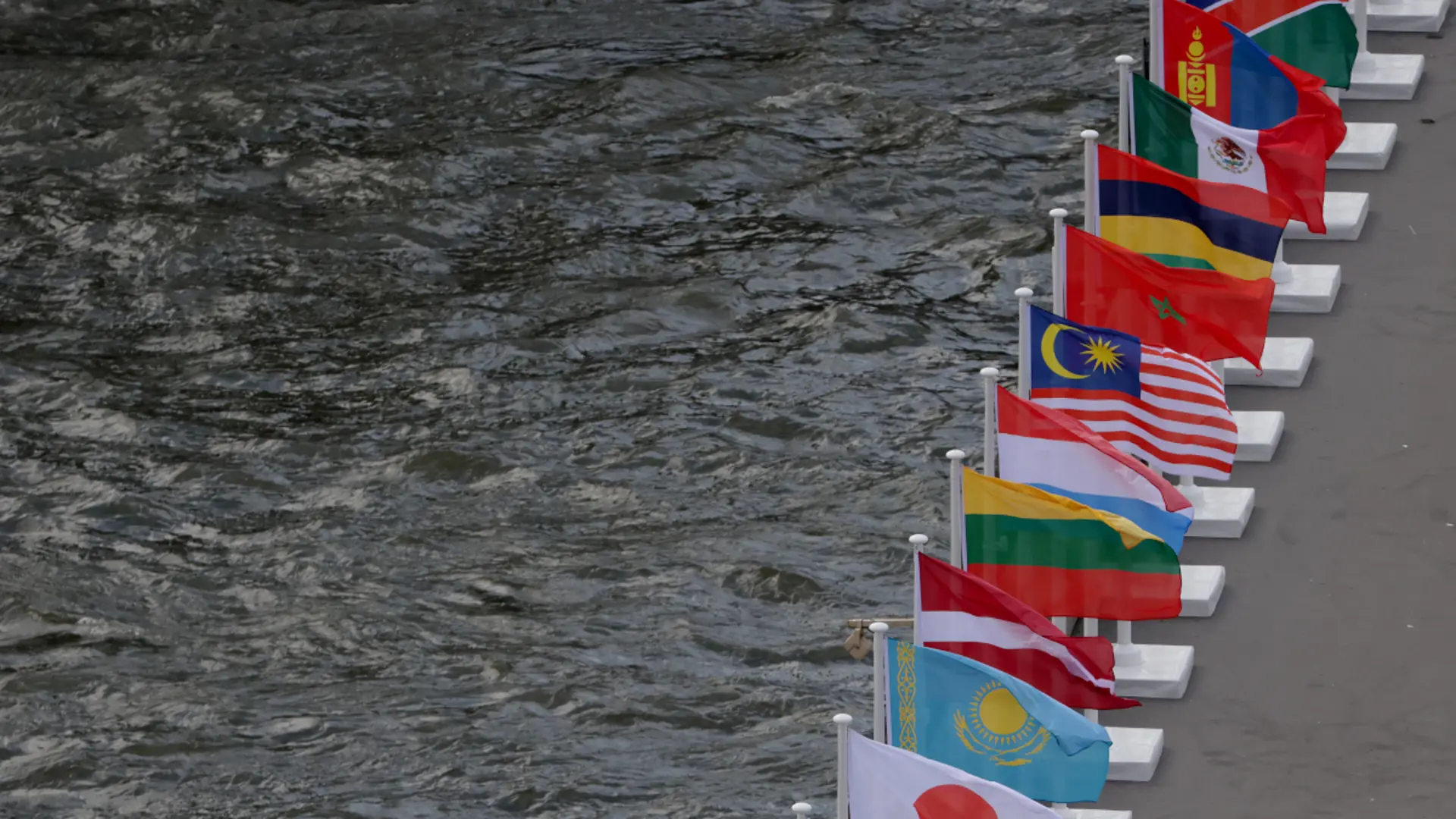Dirty Seine causes fresh suspense at Paris Olympics

Paris Olympics organisers have cancelled training for triathletes in the River Seine again because of poor water quality, leading to more uncertainty over whether the mixed relay will go ahead as planned on Monday.
All training was cancelled in the river last week and the men's individual race had to be delayed by 24 hours because of pollution problems.
It finally took place after the women's event on Wednesday.
A heavy rainstorm on Thursday night is believed to have again dirtied the river's waters, with downpours known to cause discharges from the sewers into the waterway.
Paris 2024 spokeswoman Anne Descamps told reporters that athletes were informed on Saturday evening that training had been cancelled for Sunday.
"It follows the rain that occurred in the last days," she said. "We are expecting improvements regarding the weather forecast... we are hopeful that we can organise the competition tomorrow and we will take the decision as planned tomorrow morning."
She declined to share the latest water quality readings.
The mixed relay triathlon features two men and two women per team in a sprint format, meaning a 300-metre swim, a seven-kilometre (4.3-mile) bike ride and a 1.8km run.
It was introduced at the Tokyo Olympics in 2021, where Britain won gold.
The Seine is also set to be used for marathon swimming – a 10-kilometre race – on 8 August for women and 9 August for men.
Many triathletes were surprised by the strength of the Seine's currents last week, while some also complained about the water and delays for training and the men's competition.
"While swimming under the bridge, I felt things and saw things that you shouldn't think about too much," Belgian competitor Jolien Vermeylen told the Parisien newspaper afterwards, without saying more.
Paris organisers said that the water quality was "very good" based on criteria used by World Triathlon.
The levels of E.Coli bacteria – a key indicator of faecal matter – were clocked at 192-308 colony-forming units per 100 millilitres (cfu/ml) on the day of the races, well below the upper limit of 1 000 cfu/ml.
Advertisement


